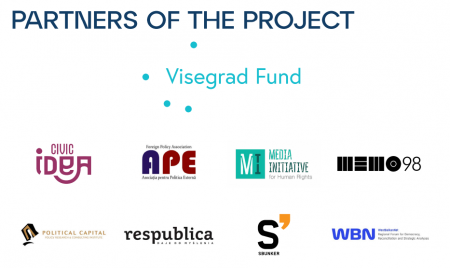Position Paper: “Resilient Neighbors: Addressing the Common Challenges to Democracy in WB and EaP Countries from a Civil Society Perspective”, FORUM 2000

EXECUTIVE SUMMARY
In the Western Balkans and Eastern Partnership countries, democracy frequently remains confined to procedures rather than substance. Despite their differing prospects for EU integration, these states often provide citizens with limited electoral choice, weak institutional accountability, and civic spaces where media and civil society operate under persistent pressure. As long as systems of managed democracy and hybrid authoritarianism prevail, democratic resilience will remain fragile and vulnerable to backsliding. Despite increasing constraints on civic space in the Eastern Partnership and Western Balkans, civic action remains vibrant and resilient. Localized instances of mobilization and resistance demonstrate a continuous public demand for accountable governance, the rule of law, and substantial reforms. This civic vitality underscores the pressing need for the EU to collaborate with both international and local partners to strengthen democratic unity and invest in enduring strategies that facilitate lasting democratic change in these regions. Beyond financial and technical assistance, strong political backing and a clear, consistent EU policy strategy are equally vital to reassure democracy defenders and inspire citizens to sustain their engagement in pro-democracy activities.
Cases of civic demonstrations in Serbia, Moldova, Georgia, and Ukraine illustrate that although popular uprisings can disrupt the system, transforming that energy into enduring reform is the most challenging struggle. Mobilization reflects public desire; yet, without structural support, it may diminish before meaningful change can take root. With at least $400 million in annual U.S. democracy funding abruptly pulled from the Western Balkans and Eastern Partnership countries, civil society organizations are struggling to stay afloat — many have cut programs or shuttered entirely. Civil society’s overreliance on donor funding has at times weakened its genuine connection to local communities. Recalibration demands a return to civic ground—rebuilding local trust and restoring citizens as the nucleus of democratic reform.
Democratic consolidation demands more than formal frameworks of institutions, laws, or procedures — it requires a vibrant civil society as an active architect in a continuous dialogue-based process. Without this foundational engagement, EU enlargement carries the risk of unintentionally legitimizing entrenched authoritarianism. This dilemma is evident on the EU’s eastern flank, where some states remain mired in outright repression, whereas others pursue fragile reforms that are highly susceptible to internal and external disruption.
Unlocking civic resilience requires thinking beyond traditional allies. Collaborative efforts with the private sector, through initiatives that create shared value and local investments, can strengthen civil society, reduce reliance on donors, and create new opportunities for impact.
Reviving democracy requires the creation of safe and inclusive spaces, especially in rural and diverse areas, where citizens can openly articulate their concerns and participate in shaping community-level solutions. Combating hate, polarization, and propaganda depends not only on institutional responses but also on locally trusted actors, culturally adapted methods, and sustained, community-based dialogue efforts.

